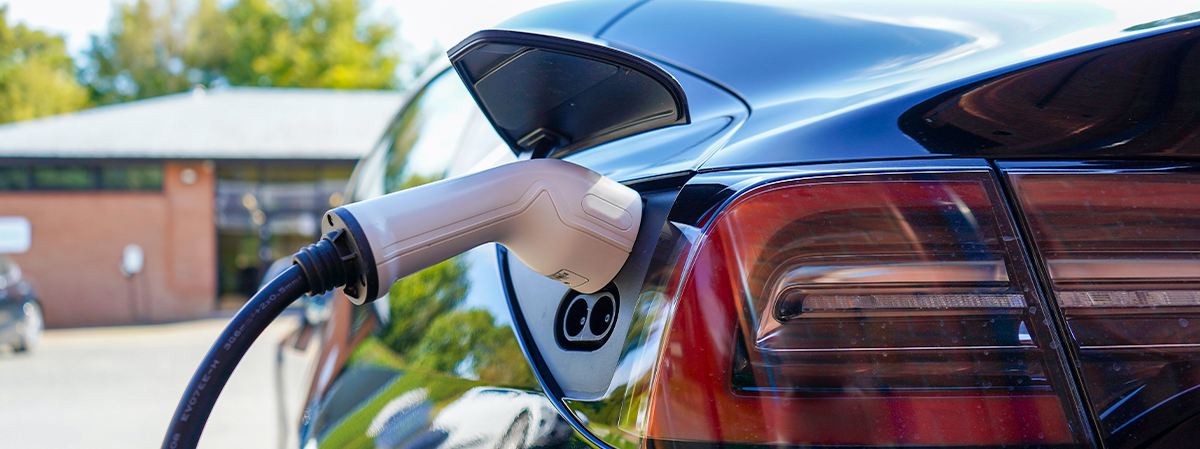Charging Points & Installation

On this page:
Types of Chargers
There are three types of charging points available on the market dubbed slow, fast and rapid.
One term that is used when it comes to charging points is tethered. This means that you don’t need to bring a cable to the charging point because there is already one attached. On the flip side, some AC charging points are untethered, which means they won't have a cable attached and you'll need to bring your own in order to use it.
There are also a variety of different connectors available for charging your electric car. Below is a summary of the three main connectors that you are likely to come across.

If you'd like to see a breakdown of the different charging connectors, click here.
Slow Chargers
Slow charging typically performs between 3kW to 6kW and uses AC power. This type of charging is normally associated with charging at home or via a 3-pin plug.
With a 3kW unit, you can expect a full charge to take between 6-12 hours, although this will vary depending on the vehicle. The majority of slow charging points will be untethered and will use a Type 2 connector.
Fast Chargers
Fast charging typically performs between 7kW to 22kW and uses AC power. These types of chargers are common at supermarkets and car parks and can also be installed at your home.
Depending on the vehicle, with a 7kW unit, you would expect a full recharge to take between 4-6 hours. A 22kW charger should take around 1-2 hours. Most fast charging points will be untethered, although some home and work units may have charging cables attached and will use a Type 2 connector.
Rapid Chargers
Rapid charging is a broad term for the fastest type of charging. These Rapid DC chargers will typically use two DC connectors (CCS and CHAdeMO - see our EV Terminology page for more information), but there are also rapid AC chargers that use Type 2 connectors at 43kW.
Ultra Rapid DC chargers provide power upwards of 100kW, making them one of the fastest charging methods currently available.
Direct Current (DC) charges electric vehicles at a faster rate because electric cars normally have to convert AC power (as used in Slow and Fast Chargers) into DC power for storage in the battery. DC charging stations bypass this process so you can charge the car quicker.
All rapid charging points are tethered and will usually be found at motorway service stations and along main routes.
Typically, most electric vehicles can be charged to 80% power in under an hour with rapid charging, depending on the vehicle. Ultra rapid DC charging stations can power up the latest long range EV models in as little as 20 minutes.
Home Charging Points
You can charge your Electric or Plug-In Hybrid vehicle at home by using a standard 3 pin plug however this can be slow and cumbersome. Therefore, we suggest installing a home charging point for quicker charging.
This enables you to charge your vehicle much quicker by using a Type 2 charging cable which is generally a more robust solution that is suitable for many environments.
Home charging points are normally fitted in the garage or on an outside wall near the driveway.
Work Charging Points
Charging points at a place of work can often be as useful as home charging points. They allow drivers to charge their vehicle during the course of the working day, ready to drive home on a topped-up battery.
However, when operating several electric vehicles, multiple charging points may be needed, often requiring extra and more intensive installation work. The work may also cost more due to being installed in car park spaces at a greater distance from the building.
When looking at workplace solutions, should a more bespoke solution be required, a site visit will be carried out to fully establish the best solution for the business.
Suppliers
Several well-established suppliers are operating across the UK - although we are unable to install charging points ourselves, we can recommend some suppliers.

